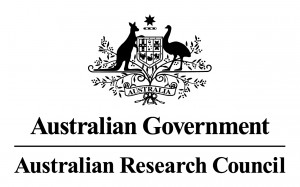Agenda
Housing prices in Australia have skyrocketed over the years and escalated into a housing crisis that is severely affecting housing affordability and sustainability of the market. As such, a call for housing reform has become not a choice but a pressing need for the government and related industries to curb the deteriorating housing affordability in the nation.
In order to understand the underlying issues of the escalating housing prices, the first day of the conference will delve into topics from understanding the current housing landscape in Australia from the perspective of funding and policy options available to better position strategies for reform. Following with insights and case studies shared from our line-up speakers, we will also look into both conventional and innovative funding mechanisms that could be beneficial in easing the strong reliance of government funding as well as the perceived low ROI by the private sector.
At the end of the first day, delegates will go through discussion to thoroughly analyze factors contributing to the ever rising housing price. Through this session, delegates will be able to draw a clearer picture on whether the rising prices are factors of insufficient supply or overheating demand.
How well the housing market work vary across countries and continents; nevertheless Australia is still able to pick up the learning points to leverage on and complement the current housing policy in Australia to achieve the optimal outcomes in delivering the housing stocks. Although there is no black and white answer to this social issue, government, housing associations and private sectors are still looking for the most appropriate and suitable answer in resolving the current housing crisis.
On this second day of the conference, delegates will be engaged in discussions to improve the delivery of housing supply in Australia. Speakers from both public and private sectors, from Australia and the region, will focus on the public policies that can help reduce the housing stress faced by the major cities. Delegates will be looking at policies on curbing housing issues through land policy, developing medium density housing as an alternative to the extravagant prices in the CBD. On top of that, speakers will guide you on how the development of technologies provides unconventional solutions to ease the demand pressure faced by government and housing associations currently.
| TIME | AGENDA | |
|---|---|---|
| 09.00 | Opening Address by Conference Chairman | |
 |
David Klingberg, Director and Principal, Smart Planning & Design
David Klingberg has over 26 years’ experience in the planning and the design industry. David specialises in bringing together teams and managing industry leaders to deliver outstanding outcomes in urban development, town planning and urban design. David has worked on significant projects nationally and internationally for state and local governments, as well as the private sector. These include land use strategies and growth area planning, mixed use and residential master planning, urban regeneration, town centre revitalisation studies and initiatives, state and local government planning policy development and urban design advice. David is driven to produce great planning and urban design outcomes, education and training. He regularly presents at conferences both in Australia and Asia and teaches at universities and for the Planning Institute of Australia. |
 |
| 09.05 | International Case Study: A Glimpse into Singapore Public Housing Policy
|
|
 |
Dr Im Sik CHO, Assistant Professor, National University of Singapore
Dr Im Sik CHO is an Assistant Professor in the Department of Architecture, School of Design and Environment, at the National University of Singapore where she serves as the Leader for urban studies research and teaching and as Principal Investigator for many research projects funded by the key government agencies in Singapore, including the Ministry of National Development, the Urban Redevelopment Authority, and the Housing and Development Board. She has served as a reviewer for the National Research Foundation of Singapore (2014-2017) and South Korea (2015) and has been invited as a visiting academic to ETH Zürich, Switzerland (2015). Her principal research interests are in urban space planning for sustainable high-density environments, and design for social sustainability involving community-based, participatory approaches. Her research addresses the challenges and opportunities that Asian cities face with accelerating social change, especially in the context of neighborhood planning, focusing on the social dimension of sustainable development. Her research has been published internationally, in many books and leading journals; recent publications as lead author include Re-framing Urban Space: Urban Design for Emerging Hybrid and High-Density Conditions (2016, Routledge), Community-based Urban Development: Evolving Urban Paradigms in Singapore and Seoul (2017, Springer), and Changing approaches to community participation for social sustainability: Neighbourhood planning in Singapore and Seoul in Caprotti and Yu (eds), Sustainable Cities in Asia (forthcoming, Routledge). |
|
| 9.45 | Understanding the Causes, not Just the Symptoms of Housing Affordability
|
|
 |
Justin Douglas, Executive Director, Economics, Population & Land Use Analytics, Department of Planning & Environment
Justin is Executive Director, Economics, Population and Land-use Analytics with the NSW Department of Planning & Environment. He is a public policy adviser with more than two decades of experience in Australia’s preeminent economic policy advising agencies, including senior executive roles at the Commonwealth Treasury and in the Prime Minister’s Department. During that time he advised Prime Ministers Howard, Rudd and Gillard, as well as Commonwealth and NSW Treasurers, on a broad range of economic, social and public policy challenges, including housing affordability. |
|
| 10.25 | Morning Refreshments & Networking | |
| 10.45 | Developing A Policy And Funding Framework For Social And Affordable Housing In Australia
|
|
 |
Philip Fagan-Schmidt, Executive Director, Housing SA
Philip Fagan-Schmidt holds the position of Executive Director, Housing SA. He has worked in both academic and government spheres. He was appointed to this role in January 2009 having served as a State Government Executive across a range of areas including health, housing, natural resource management, infrastructure and major projects. His key focus at Housing SA has been in promoting the development of affordable housing policy and practice and structural reform in the homelessness, Indigenous remote and public housing sectors. |
 |
| 11.25 | A Place for Everyone – Tackling Sydney’s Affordable Housing Crisis & PwC’s Affordable Housing Initiative
Sydney is currently in a housing affordability crisis, with a significant amount of individuals and families in housing stress. While housing purchase affordable is relentless, the rental system is also one of the word’s most unstable and unaffordable. This makes it difficult for low to moderate income earners to be housed in locations with high amenity of living and community benefit that are also near to jobs and services. Affordable rental housing forms a significant part of the housing continuum, yet is undersupplied and in significant need. There are little incentives and policies ensuring a continuous supply of affordable dwellings for low to moderate income earners. This in turn places downward pressure on the social housing system and homelessness. Much of the affordable rental housing debate to date has focused on the supply of new residential apartment-style buildings, with incentives around floor space bonuses and planning agreements. But we believe the ‘missing middle’ should be addressed – housing options like more townhouses, terraces and manor homes – to increase housing diversity and cater for the needs of different families. Our initiative brings together the missing middle and affordable rental housing by providing a simple change to state planning regulations to incentivise the inclusion of affordable rental housing in low-rise medium density housing. The incentive is aimed at low-scale development of 3-10 dwellings on single residential lots and small amalgamations, allowing for single lot owners, small developers and community housing providers (CHPs) to participate in the provision of affordable housing. The initiative also addresses issues pertaining to density uplift. Sydney currently contains vast areas of low density residential zones, mostly comprising of detached single houses and at most, dual occupancies. We believe that density uplift is inevitable to address the housing needs of the growing population. The incentive allows for gradual density uplift of a reasonable scale to these areas of Greater Sydney. |
|
 |
Stephanie Hall, Urban Planner, Infrastructure and Urban Renewal, PricewaterhouseCoopers
Stephanie is an experienced urban planner and architectural project manager, specializing in statutory town planning, heritage planning and strategic urban outcomes. Stephanie utilizes her strengths in, and passion for architecture, urban design and urban planning to deliver a diversity of projects across NSW, from project inception to construction. Stephanie uses her effective communication abilities to consult with various stakeholders, believing that consultation and collaboration forms a key framework for place-making practices and delivering design of high amenity. Stephanie has a passion for affordable housing, believing that every healthy society needs diverse and affordable housing of high amenity – and that this should be available to everyone. Stephanie was previously the Director of a Sydney-based planning firm, providing advice and documentation for residential, commercial, retail, industrial and heritage projects, as well as strategic planning strategies for urban renewal and affordable housing developments. At PwC, Stephanie contributes urban planning expertise in urban renewal, housing, transport, strategic planning and infrastructure projects. Stephanie is a Member of the Planning Institute of Australia. |
 |
| 12.05 | Networking Luncheon | |
| 13.20 | Towards A National Housing Strategy
|
|
 |
Professor David Adamson, OBE, Research and Development Manager, Compass Housing Services, Newcastle, NSW
Dave Adamson is Research and Development Manager at Compass Housing Services, Newcastle, NSW. He arrived in Australia in 2015 and retains the title of Emeritus Professor at the University of South Wales, UK, where he worked for 30 years and held the Chair of Community and Social Policy. He has extensive experience of research, evaluation and policy development in housing, regeneration and anti-poverty related areas. He was the author of the Towards a National Housing Strategy (www.compass.org/towards-national-housing-strategy). His current interests include housing policy, housing-led community renewal and social housing innovation. |
 |
| 14.00 | Panel Discussion: Abolishing/Reforming Negative Gearing and Capital Gain Tax to Ensure Housing Affordability for All
|
|
 |
Moderator:
David Klingberg, Director and Principal, Smart Planning & Design David Klingberg has over 26 years’ experience in the planning and the design industry. David specialises in bringing together teams and managing industry leaders to deliver outstanding outcomes in urban development, town planning and urban design. David has worked on significant projects nationally and internationally for state and local governments, as well as the private sector. These include land use strategies and growth area planning, mixed use and residential master planning, urban regeneration, town centre revitalisation studies and initiatives, state and local government planning policy development and urban design advice. David is driven to produce great planning and urban design outcomes, education and training. He regularly presents at conferences both in Australia and Asia and teaches at universities and for the Planning Institute of Australia. |
 |
| Panelists: | ||
 |
Benjamin Kingsley, Chairman, Property Investment Professionals of Australia (PIPA)QPIA®, Licensed Real Estate Agent (VIC, NSW & QLD), Diploma Financial Services – Mortgage Broking, Associate Diploma Business – Tourism & Travel, MFAA Member
Ben is the CEO and founder of Empower Wealth Advisory – a specialist property investment firm. He has more than 20 years’ experience in property investing, analysis, and advisory work. Ben has been chairman of the Property Investment Professionals of Australia since July 2012 and is committed to the introduction of regulation surrounding the provision of property investment advice to protect consumers. Ben is a highly sought-after property commentator and keynote speaker in the property, money management, and investment fields and features on Sky Business News, ABC News 24, Melbourne Property TV and Look at Property. He is the author of many property investment, wealth management, and personal finance articles and research reports in major industry publications and is the co-host of the popular free podcast – The Property Couch. He is also the co-author of The Armchair Guide to Property Investing. |
 |
| 14.40 | Afternoon Refreshments & Networking | |
| 15.00 | Pre-Fab Housing – The New Green in Expediting the Delivery of Affordable Housing?
|
|
 |
Dr Tuan Ngo, Director, Advanced Protective Technology of Engineering Structures (APTES) Group, University of Melbourne
A/Prof Ngo is the Director of the Advanced Protective Technology of Engineering Structures (APTES) Group at the University of Melbourne. Between 2005-2009, he was the Research Manager of the ARC Research Network for a Secure Australia (RNSA), the Australia’s most comprehensive network in the multi-disciplinary areas related to critical infrastructure protection from natural or human-caused disasters. Dr Ngo has attracted significant amounts of research funding (totalling more than $12M) from government agencies and industry. Dr Ngo has played a key role in the PrefabAUS, a peak industry body, involving more than 180 companies in the prefabricated manufacturing of modular buildings. He has carried out significant research collaborations with industry and government agencies to perform R&D experiments of prefabricated modular components of building structures (facades, wall panels and floor slab systems). He has successfully coordinated a large Training Centre for Advanced Manufacturing of Prefabricated Housing funded by ARC and industry. The national and international research interactions have given Dr Ngo widespread recognition amongst the scientific community and industry as an expert in design and manufacturing of building components and systems using high performance materials. This centre aims to unlock the potential growth of Australia’s prefab building industry by creating a sustainable training ecosystem between industry and Australian Universities that will prepare the next generation of engineers and scientists to apply advanced manufacturing principles to pre-fab modular buildings. Dr Ngo has won a number of prestigious scientific awards, including the Safeguarding Australia Award (2011) for the best contribution to national security technology research and the prestigious Eureka Science Prize (2013) for Outstanding Science in Safeguarding Australia. He has been working as an expert on many government projects related to national critical infrastructure security (airports, bridges, tunnels, ports, gas and power plants, water pipelines etc.) and the protection of Australian diplomatic posts overseas. Dr Ngo is one of the pioneers in Australia carrying out research in the emerging research area on safe and sustainable technologies for building structures and façade systems. Dr Ngo has also been leading the research and development of advanced protective materials and systems for a number of companies in the civil, defence and security industries. |
 |
| 15.40 | Flat-pack Homes in Affordability Housing – Rethinking “Space” and “Wealth”
|
|
 |
Alexander Symes, Director of Architectural Practice ASA & Co-founder of Big World Homes
After several formative years practicing architecture, Alexander Symes felt unsatisfied with his architectural approach to sustainability. Motivated to change this, Alex joined multi-disciplinary technical services firm Arup and in 2010 begun a process of up-skilling himself as a building physicist and facade engineer. Over the 4 years at Arup, Alex learnt the fundamentals of environmental quantification, sustainability governance frameworks and developed his capability to detail striking facades that were also responsible. Alex established Alexander Symes Architect in 2014 and has since delivered a number of award winning projects for Austinmer beach house, butterfly house and Dresden mobile and was awarded the 2016 Sustainability Awards Best Newcomer. |
 |
| 16.20 | Co-operative and Social Housing – Web Presentation
|
|
 |
Blase Lambert, Chief Executive Officer, Confederation of Co-operative Housing
Blase has been a leading player in the UK co-operative housing sector for the last 20 years and is currently the Chief Officer of the Confederation of Co-operative Housing (CCH). Blase led the development of the CCH / NHF Code of Governance for Housing Co-operatives, Accreditation Frameworks, Centre of Excellence training programme and leads the CCH support and advice service. Blase is a Board member of Co-operative Housing International and the Co-operative Housing Finance Society. |
|
| 17.00 | Closing Remark by Chairperson |
Workshop Timetable:
Workshop A will run from 9:00 – 12:30 with mid-morning and luncheon breaks.
Workshop B will run from 13:30 – 17:00 with a mid-afternoon break.
Registration begins 30 minutes before each workshop commences.
| TIME | AGENDA |
|---|---|
| Workshop A: 09:00 – 12:30 | Positioning Communities for Institutional Financing
Attracting institutional financing to fund affordable housing has been viewed one of the most viable and discussed options in expediting the supply of housing targeted at low to moderate income households. With various funding mechanism proposed, it is vital for the state and private sector to have a clear understanding on the risks and opportunities of the methods proposed to develop a collective plan in solving the housing affordability issues. This workshop strives to provide participants with practical insights on how to successfully leverage on the communities competitive edge to unlock housing growth opportunities. It will also provide participants with a holistic understanding and approach in crafting the agenda for engaging with the stakeholders to unlock the benefits of the financing model available. Key Takeaways:
|
| Workshop B: 13:30 – 17:00 | Delivering Innovations and Developments in Shared Ownership in Affordable Housing
Shared Ownership Model has been brought to the government latest agenda recently, suggesting that government and home owners go in to buy a house together. The pilot shared home ownership scheme has been operating in two states and has put more than 70,000 people into home over the past years. Thus, it would be important for us to look into the potential of attracting both public and private sector into investing into this model under the current national scheme. This workshop strives to provide participants with practical insights on how shared ownerships model could help in easing the housing affordability crisis face by Australian today. It will also provide participants with the latest updates around the regulations and laws on the shared ownerships model and explore the challenges and schemes require in unlocking the benefits of shared ownership in the delivery of affordable housing. Key Takeaways:
|












